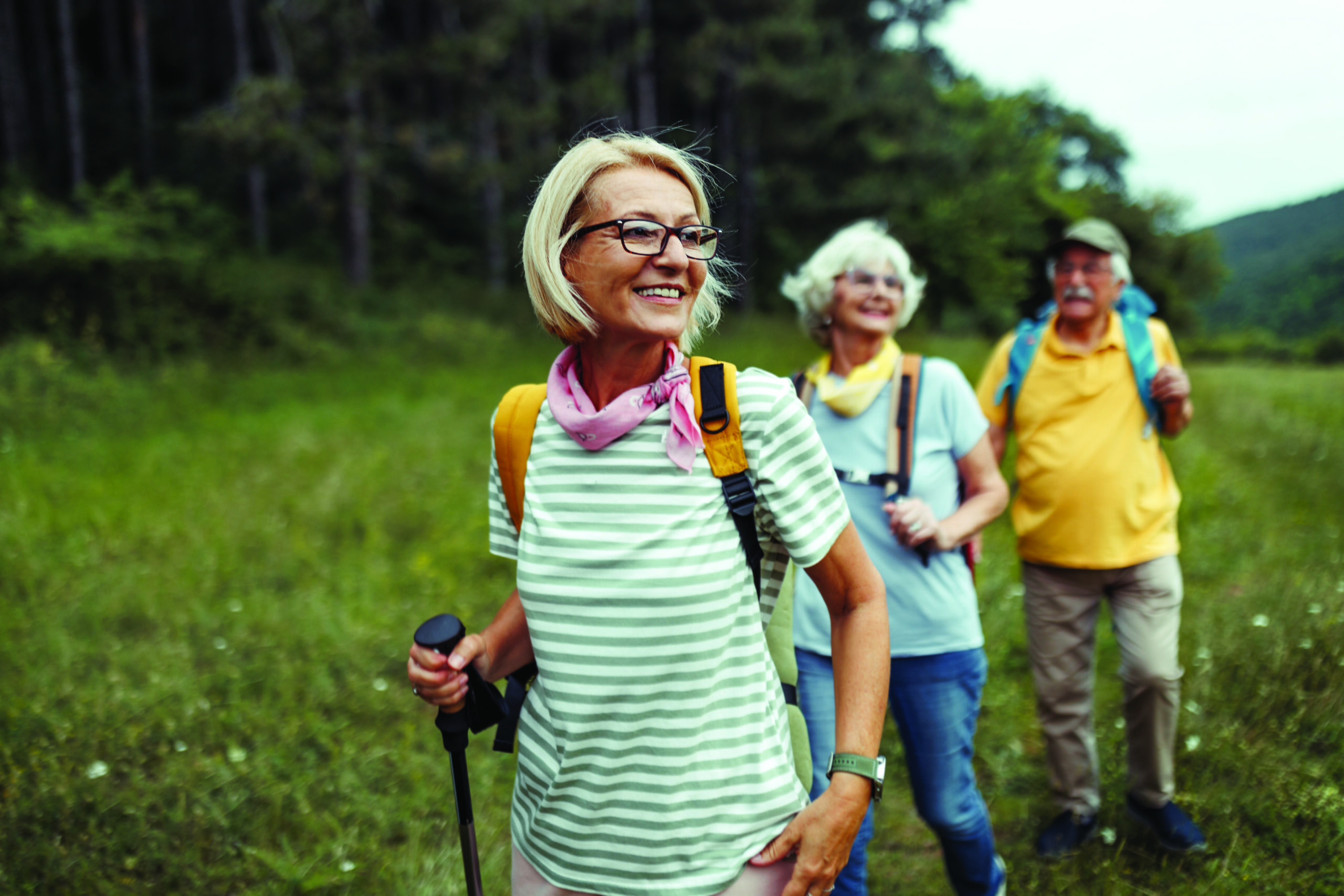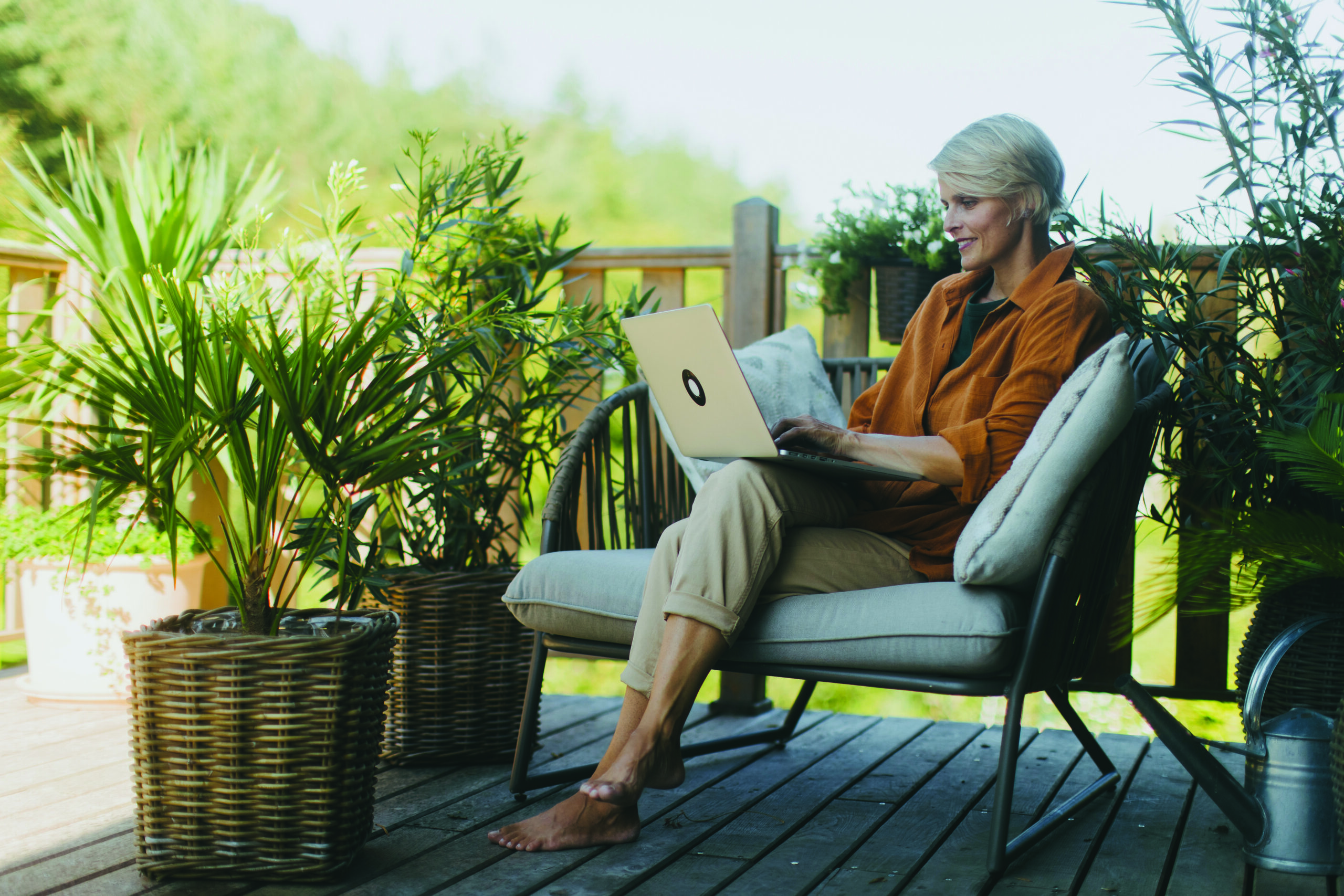by Samantha Voss
As the years go by, the idea of “healthy aging” goes from being an abstract idea to something that everyone needs to know more about. It’s not just about living a long life; it’s also about making sure that the last few decades are full of energy, purpose and the ability to enjoy the world around us.
Healthy aging is not a passive process. It is an active pursuit, a constant dedication to well-being that can have a big effect on our physical and mental independence.
Incorporate Physical Activity into Your Life
Exercise is one of the most important things you can do to stay healthy as you get older. Everyone knows that exercise is good for us, but as we get older, it becomes even more important.
Regular exercise helps keep muscular mass and strength, which are important for balance, moving about and avoiding falls. It also helps keep blood pressure in balance, improves heart health and can aid with illnesses including type 2 diabetes and arthritis.
The good news is that it’s never too late to begin. A balanced fitness program for older individuals should include these four main types:
- Aerobic Activity: This includes things like swimming, dancing, cycling and walking quickly. These things increase your heart rate and build endurance. Try to do at least 150 minutes of moderate-intensity aerobic exercise per week.
- Strength Training: Lifting weights, using resistance bands or even your own body weight (such as squats and push-ups against a wall) helps you build and keep muscle. Strong muscles make it easier to do things every day and keep your joints safe. It is best to do this two to three times a week.
- Balance Exercises: Our balance can get worse as we get older, which makes it more likely that we will fall. Tai Chi, yoga or even just standing on one leg can help your balance and stability a lot.
- Flexibility Exercises: Stretching your joints helps keep them from being tight and makes you feel better overall. Make sure you do some mild stretches every day.
In addition to planned workouts, just being active in your regular life can help. Instead of taking the elevator, walk to the shop, garden or do hobbies that keep you moving. The most important thing is to be consistent and pick things you really enjoy doing. This will make it simpler to remain with them.
Nutrition Is Important for Healthy Aging
The food we eat has a direct effect on our immune system, energy levels and the health of our bones, muscles and organs. As we get older, our metabolism may slow down, and our dietary needs may change. It’s important to pay attention to portion sizes and choose foods that are high in nutrients.
Some key nutritional considerations for older people to think about are:
- Protein: Getting enough protein is important for keeping muscle mass and mending tissues. Lean meats, poultry, fish, eggs, dairy, legumes and nuts are all great sources.
- Fiber: Fiber is found in fruits, vegetables, whole grains and legumes. It promotes digestion, keeps blood sugar levels stable and can make you feel full.
- Calcium and Vitamin D: Important for bone health and stopping osteoporosis. Good sources are dairy products, plant-based milks that have been fortified, leafy greens and fatty fish. Getting sunlight is also important for making vitamin D.
- Staying Hydrated: As you get older, your thirst signals may not work as well, which makes it easy to get dehydrated. Even if you don’t feel thirsty, drink a lot of water during the day.
It’s also vital to cut out processed foods, too much sugar and bad fats. Your body needs fuel and building blocks to thrive, and a balanced diet full of whole, unprocessed foods gives you both.
Keep Your Mind Active as You Age
Regular exercise is good for the brain, just like it is for any other muscle. Doing things that challenge your mind can help keep your brain healthy, boost your memory, and maybe even slow down the effects of aging on your brain.
Think about adding these to your daily life:
- Learning New Skills: Pick up a new language, learn to play an instrument or try a new pastime that makes you think.
- Reading and Writing: Reading books, newspapers and articles on a regular basis, and writing (such as journaling or creative writing) keeps your brain busy.
- Puzzles and Games: Crossword puzzles, Sudoku, jigsaw puzzles and strategy games are all great ways to keep your mind sharp.
- Social Interaction: Engaging in conversations and thoughtful discussions with other people gets your brain working.
The idea of “use it or lose it” applies to our brains as much as our bodies.
Social Connection Is a Strong Factor in Healthy Aging
Being alone and cut off from others can have serious negative effects on both physical and mental health, raising the risk of depression, anxiety and even heart disease. Having strong social connections provides emotional support, reduces stress and creates opportunities for engagement and a sense of purpose.
To help people connect, try these ideas:
- Connecting with Family and Friends: Try to talk to loved ones often, either in person, on the phone or by video call.
- Joining Clubs and Groups: You can follow your interests and hobbies by joining clubs, volunteer groups or community groups in your area. This is a great opportunity to meet new individuals who like the same things you do.
- Volunteering: Volunteering is a great way to give back to your community and meet new people at the same time.
- Going to Community Events: To keep connected to your community, go to local events, classes and activities.
Proactive Health Management Is the Cornerstone of Healthy Aging
Proactive health management brings all these parts together in the end. This means going to the doctor regularly, taking the medicines that are recommended, and being honest with your doctor about any health problems you have. Regular screenings can find problems early on, which makes it easier to fix them.
It’s also important to make sleep a priority because getting enough rest is important for both physical and mental recovery. Mindfulness, meditation and spending time in nature are some of the ways to deal with stress that can also have a big impact on your overall health.
Healthy aging is not a matter of luck; it is the product of making decisions that are consistent and intentional. We may greatly improve our chances of staying active, independent and healthy as we become older by living a life that values exercise, healthy nutrition, mental stimulation, social interaction and proactive health management.
It’s an investment in our future selves that makes sure we don’t only live the years ahead but really enjoy them. Everyone’s path to healthy aging is different, but the rules are the same for everyone: take care of your body, challenge your intellect, connect with people and take ownership of your health. This way, we can change what it means to get older, turning it into a time of growth, discovery and happiness.








Leave A Comment